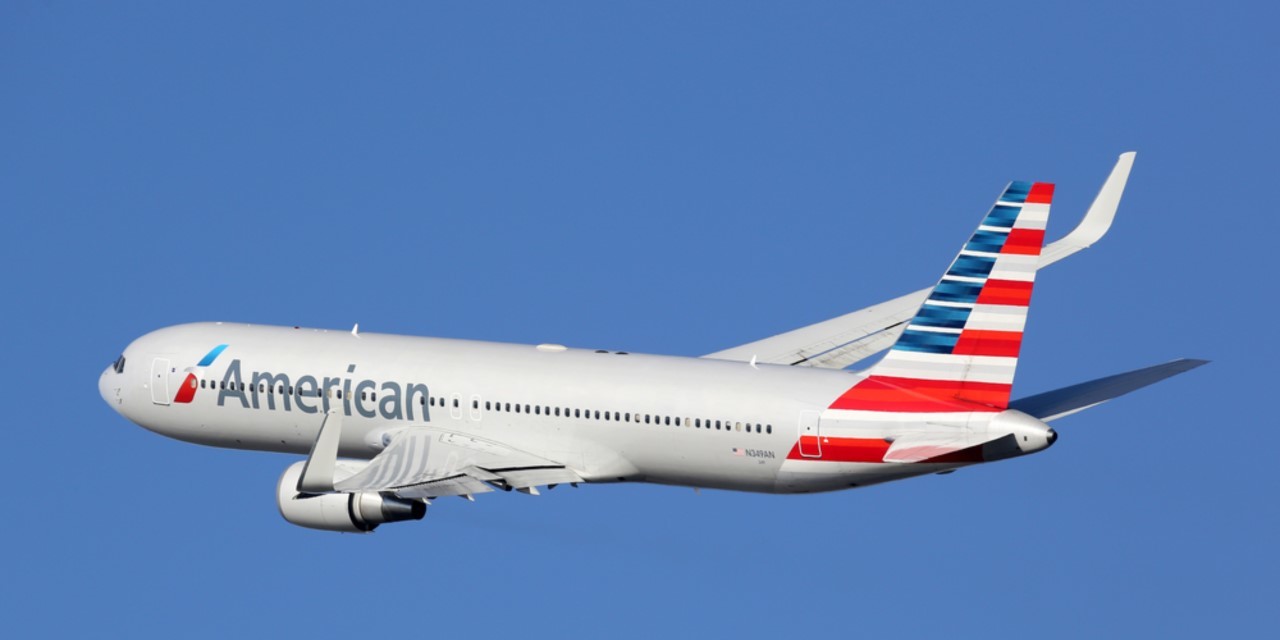PHILADELPHIA – A federal judge opted to reject a dismissal motion from American Airlines Group, on the grounds that a dispute over an employee profit-sharing plan does in fact fall within the court’s jurisdiction.
U.S. District Court Judge Harvey Bartle III decided to retain plaintiff James B. Scanlan’s count of breach of contract against defendant American Airlines Group, Inc. on May 5.
Scanlan, a major general in the United States Air Force Reserve and a pilot for American Airlines, filed suit against AAG and its parent company for violation of the Uniformed Services Employment and Reemployment Act and breach of contract by AAG under Texas law.
Specifically, Scanlan claims that AAG established a profit-sharing plan in which plaintiff and other AA pilots participate, but under which they are not receiving what is due under the plan, because AAG excludes from eligible earnings the income to which the pilots are entitled while they are on short-term military leave.
As written, the profit-sharing plan established by AAG sets aside 5% of its pre-tax earnings each year for pro rata distribution to qualifying employees of AA and other affiliated airlines based on each participant’s “individual eligible earnings” for that year.
It was further made clear that the plan was not negotiated by the union representing pilots like Scanlan, nor was it incorporated into any collective bargaining agreement. But the pilots and the airline dispute the interpretation of what is considered eligible earnings under the plan.
“AAG argues that the dispute over the meaning of the Section 401(k) plan is ‘a minor dispute’ within the exclusive jurisdiction of a board of adjustment under the Railway Labor Act. As noted above, it seeks dismissal of Count II for lack of subject matter jurisdiction,” Bartle stated.
Bartle determined, however, that the labor dispute as outlined did not fall under the auspices of the Railway Labor Act, which had been amended to include airlines in 1936.
“Disputes, however, between an air carrier and its employees which are independent of a collective bargaining agreement are not subject to the dispute resolution mechanism of the Railway Labor Act,” Bartle stated.
Bartle added AAG alone designed the plan and can change it at any time.
“The profit sharing plan, as noted above, is not a collective bargaining agreement. It was established and written by AAG alone without input from the union and can be amended, modified, annulled, or terminated unilaterally by AAG without any input from the union. The court has before it the interpretation of a provision of the profit sharing plan which happens to incorporate by reference certain language from a 401(k) plan to which AAG is not a party. The reference to the 401(k) plan was AAG’s own doing and was not required by any labor negotiation,” Bartle said.
Bartle acknowledged while it was true the 401(k) plan was negotiated as part of a collective bargaining agreement with AA, it was not negotiated between AA and its employees or their union as part of the profit-sharing plan and termed that a “significant distinction.”
Bartle stated that distinction made it irrelevant whether the parties agreed or disagreed as to the meaning of the words or provisions of the 401(k) plan as used in the profit-sharing plan, since the definition of eligible earnings for present purposes is independent of any collectively bargained agreement.
“The profit sharing plan could just as easily have copied the exact words of the 401(k) plan to define ‘eligible earnings’ without any mention of the 401(k) plan itself. Under that scenario, AAG concedes it would not have a meritorious argument that a minor dispute under the Railway Labor Act is at issue,” Bartle said.
“Looking at the realities and putting substance over form, neither the profit sharing plan nor any of its provisions metamorphosed into a collectively bargained agreement under the Railway Labor Act.”
Bartle outlined another reason why AAG’s motion to dismiss the second count fails, namely that the Railway Labor Act has a level of specificity in which disputes it can govern.
“The Railway Labor Act concerns disputes ‘between an employee or groups of employees and a carrier or carriers by air.’ The plaintiff is an employee of AA. The claim in Count II is not against AA, an air carrier. The only defendant sued in Count II is AAG, the parent of AA and the only party which established and controls the profit sharing plan. AAG is not an air carrier,” Bartle said.
“Plaintiff is correct that Count II does not concern an interpretation of and is independent of any collective bargaining agreement. Thus plaintiff’s claim is not a minor dispute subject to the exclusive jurisdiction of a board of adjustment under the Railway Labor Act. The motion of defendant AAG to dismiss Count II of the Second Amended Complaint will be denied.”
U.S. District Court for the Eastern District of Pennsylvania case 2:18-cv-04040
From the Pennsylvania Record: Reach Courts Reporter Nicholas Malfitano at nick.malfitano@therecordinc.com
